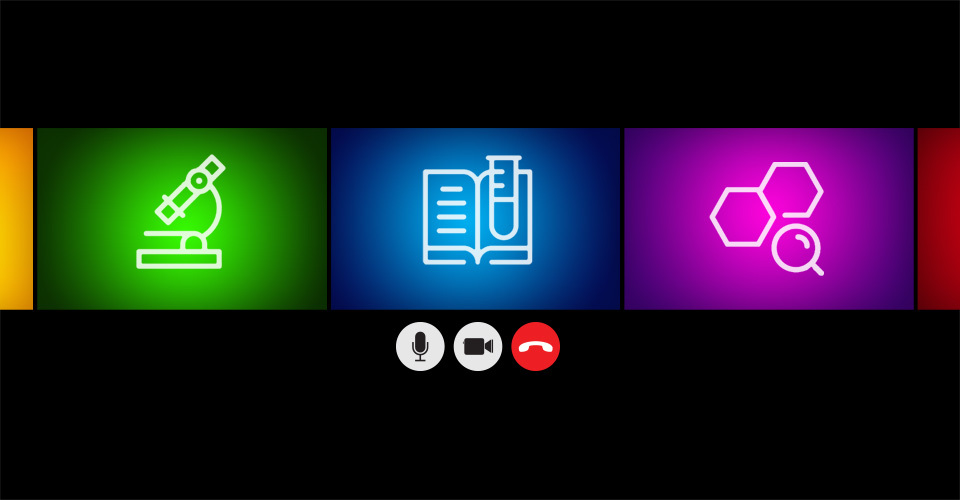“Simply practicing the status quo means we’ll deliver care the way we do today.”
Those were the cautionary words of President Langell, delivered at the opening of the 2021 Student Research Symposium. There was also a call to action in Dr. Langell’s message – a reminder for students to push themselves to find solutions beyond traditional care that will advance the understanding of disease processes and lead to improvements for patients.
“It is so important that research be an integral part of everything we do in academia and the practice of clinical care,” President Langell said. NEOMED’s robust Student Research Fellowship Program offers funded opportunities for mentored research across the University’s six Research Focus Areas.
COVID-19’s challenges were no match for the 127 students who persevered to complete projects and presented their scholarly research with individual presentations and conversations in breakout rooms at the Symposium, held Nov. 19. The program built on the success of the inaugural online event created in 2020 as a way for students to present their research despite the COVID-19 pandemic.
This year’s Symposium was again led by members of the Committee for Student Clinical Research, who have spent months working with their classmates to develop an event at which they could educate the NEOMED community on their work and its implications for the health care system.
“Research does encompass the basic science data, but it also plays a role in building relationships with colleagues and mentors,” said Committee co-president Raman Bhambra, M2, as she shared how students benefit by taking an active role in the research process.
Following the opening remarks, students went into virtual breakout rooms to present their research in individual sessions. Second-year College of Medicine student Alice Dalo was among the presenters, sharing a presentation titled “Language, Race, Ethnicity and Insurance-Related Disparities in Blepharoptosis Surgery.” (Blepharoptosis is drooping of the upper eyelid.) Dalo spent several minutes explaining her scholarly work – including the research methods she used, the results from the data collected, and a discussion and conclusion – then involved participants in a question-and-answer session.
How did the multi-hour program go?
“My final word of the day is, ‘Wow!’,” said Steven Schmidt, Ph.D., vice president for research and dean of the College of Graduate Studies, following the presentations. “I’m continually blown away by the depth and breadth of the research that is presented by students.”
MORE:
- View the 2021 Student Research Symposium program.
View Dalo’s and other student presentations from each of the sessions:
Session 1
Foundational Orthopedics
Moderator: Alice Dalo
Anatomical Sciences
Moderator: Pratyusha Ghanta
Neurodegenerative Disorders
Moderator: Gurkiran Singh
Neurodegenerative Disorders and Brain Injury
Moderator: Hannah Mann
Clinical Investigations and Interventions
Moderator: Katie Bretland
Clinical Investigations and Innovations
Moderator: Yusuf Khalil
Primary and Mental Health Care 1
Moderator: Vincent Pham
Primary and Mental Health Care 2
Moderator: Raman Bhambra
Session 3
System Sciences
Moderator: Parker Kelly and Christina Koehler
Pharmacology
Moderator: Vindya Perera
Translational Models 1
Moderator: Scott Everett and Andrew Alejo
Translational Models 2
Moderator: Varun Nagendra
Session 4
Quality Improvement and Evaluation
Moderator: Taylor Yamamoto
Education and Program Evaluation
Moderator: Meghana Chanamolu
COVID-19
Moderator: Ernesto Soloranzo Zepeda
Specialty Medicine I
Moderator: Nino Kovaljesko
Session 5
Career Pathways
Moderator: Zachary McCalla
Specialty Medicine II
Moderator: Adam Awad
